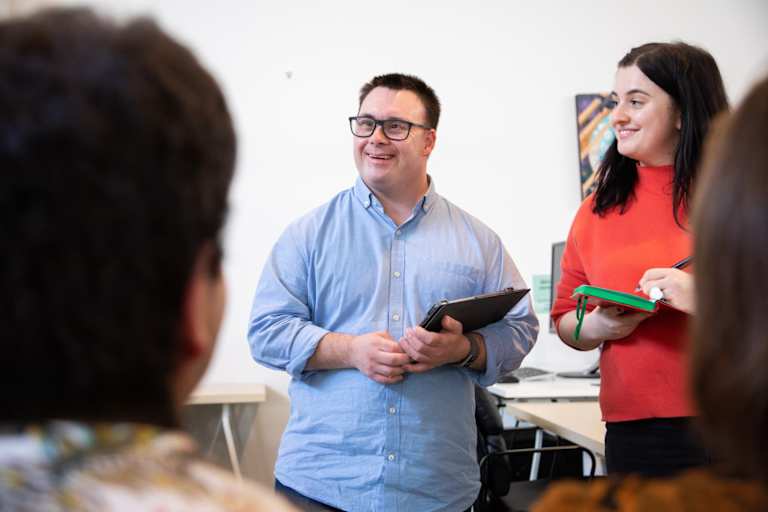Counseling License Requirements in Michigan
Here are the answers to your frequently asked questions about Michigan counseling licensure requirements.Michigan offers professional licensing for counselors, marriage and family therapists, and school counselors. Professional counseling organizations in Michigan advocate for professional development for counselors across the state. Learn more about Michigan licensure requirements, renewal information, and salaries.
Michigan Counseling Licensure Requirements
Michigan counseling licensure requirements vary depending on the career path you plan to pursue. Michigan’s Bureau of Professional Licensing oversees professional licensing for professional counselors and marriage and family therapists. The Michigan Department of Education handles licensing for school counselors.
For all counseling professionals, several licensure levels are available to reflect the level of training completed and eligibility to work independently.
Here is an overview of Michigan counseling licensure requirements:
How Long Does It Take to Become a Counselor in Michigan?
After completing your bachelor’s degree, satisfying Michigan counseling licensure requirements will typically take between two to five years. A master’s degree in counseling, marriage and family therapy, or school counseling typically takes 2-3 years to complete. Depending on your career path, you will need to complete up to two years of supervised experience after graduation.
If you decide to pursue a doctoral degree, your timeline to licensure will increase by several years. Ph.D. programs commonly take 4-6 years to complete.
Out-of-State Licensing Reciprocity in Michigan
While Michigan does not offer out-of-state licensing reciprocity, if you hold a current counseling license in another state, you may be eligible for licensure in Michigan by endorsement. Endorsement candidates with fewer than five years of professional experience must provide official transcripts and examination scores.
A temporary school counselor license (TSCL) is available for out-of-state school counselors. This allows new school counselors to be hired in a Michigan school while preparing to pass the required MTTC. The TSCL is only valid for one year and cannot be renewed.
How to Renew a Counseling License in Michigan
Counselors and marriage and family therapists in Michigan must renew their licenses every three years. This involves paying a renewal fee, completing a good moral character questionnaire, disciplinary question, renewal attestation, and one hour of implicit bias training for each license cycle year.
School counselors in Michigan must renew their licenses every five years. At least 150 hours of education-related professional learning is required during each renewal cycle. Fifty professional development hours must cover college preparation and selection and career consultation.
Salary Expectations for Counselors in Michigan
Salary expectations vary for counselors in Michigan depending on a professional’s degree, work setting, and experience level. According to the U.S. Bureau of Labor Statistics (BLS), school counselors earn the most, while rehabilitation counselors earn the lowest salary of counselors in Michigan.
Counselors in Michigan earn less than the national average. The most significant difference impacts marriage and family therapists, who make an average of $72,720 nationally compared to a $59,210 average in Michigan.
| Occupation | Average Hourly Salary | Average Annual Salary |
|---|---|---|
| Educational, Guidance, and Career Counselors and Advisors | $31.74 | $66,020 |
| Marriage and Family Therapists | $28.47 | $59,210 |
| Rehabilitation Counselors | $22.51 | $46,820 |
| Substance Use, Behavioral Disorder, and Mental Health Counselors | $29.79 | $61,960 |
| Counselors, All Other | $24.94 | $51,870 |
Professional Organizations for Counselors in Michigan
- Michigan Counseling Association: A nonprofit organization, the Michigan Counseling Association (MCA) is the state’s largest association exclusively representing professional counselors. MCA offers leadership training, publications, continuing education, and advocacy services for its members.
- Michigan Mental Health Counselors Association: The Michigan Mental Health Counselors Association (MMHCA) upholds the highest standards of ethical practice and professional integrity for Michigan counselors. MMHCA works in public policy, training and education requirements for counselors in the state.
- Michigan School Counselor Association: The Michigan School Counselor Association is a state division of the American School Counselor Association. It provides legislative advocacy for school counselors in the state, professional development opportunities and free consultation with board members, including an ethics specialist.
Frequently Asked Questions About Counseling Licensure
Michigan counseling licensure requirements include an accredited graduate degree, supervised experience hours, and passing exam scores. Specific requirements vary depending on the type of counseling license you want to pursue.


